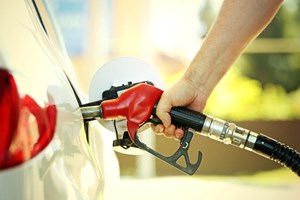



- |
- Chinese








(Bloomberg) — Oil prices pose a high risk to the global economic recovery, with signs that fuel costs are starting to “take their toll” on demand growth, the International Energy Agency said.
The Paris-based adviser trimmed forecasts for oil consumption this year and next amid growing fears of a recession, warning that prices threaten stability in emerging economies. Still, the demand weakness is being offset by tightening supply as sanctions hit Russia and OPEC+’s spare capacity dwindles.
“Rarely has the outlook for oil markets been more uncertain,” the agency said in its monthly market report on Wednesday. “A worsening macroeconomic outlook and fears of recession are weighing on market sentiment, while there are ongoing risks on the supply side.”

Crude prices remain near $100 a barrel despite a recent pullback, as global supplies and refining infrastructure fail to keep pace with the post-pandemic rebound in fuel use. Inventories are “critically low,” and sanctions on Russia following its invasion of Ukraine threaten to disrupt energy flows significantly, the IEA said.
With gasoline prices stoking unprecedented inflation in the US, President Joe Biden is urging Middle East producers to open the taps as he embarks on a tour of the region, due to include a stop in OPEC leader Saudi Arabia.
Yet the Saudis and neighboring United Arab Emirates -- the only members of the Organization of Petroleum Exporting Countries able to raise output -- are constrained in what they have left to offer. By August, spare capacity in the two producers will be at a “razor-thin” 2.2 million barrels a day, the IEA said.
“With readily available spare capacity running low in both the upstream and downstream, it may be up to demand-side measures to bring down consumption,” the agency said. “Without strong policy intervention on energy use, risks remain high that the world economy falls off-track for recovery.”
The IEA “marginally” lowered its estimates for global oil demand growth this year, to 1.7 million barrels a day, or about 1.8%. Consumption will average 99.2 million barrels a day in 2022, then surpass pre-Covid levels in 2023 with a further increase of 2.1 million a day.
With the softened outlook for demand, and stronger forecasts for supplies outside OPEC, world oil stockpiles ought to replenish somewhat in the second half of the year, the IEA said.
At the same time, the agency has considerably scaled back its expectations for the impact on Russian supplies, which it initially expected would slump by a quarter in the initial months of the assault on Ukraine. The country’s output rose last month to 11.07 million barrels a day, or just 330,000 barrels a day below pre-conflict levels, the IEA said.
Nonetheless, the agency still projects that Russian production will buckle in the months ahead as sanctions take hold, plunging by about 3 million barrels a day to 8.7 million a day by the start of next year.